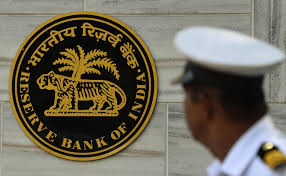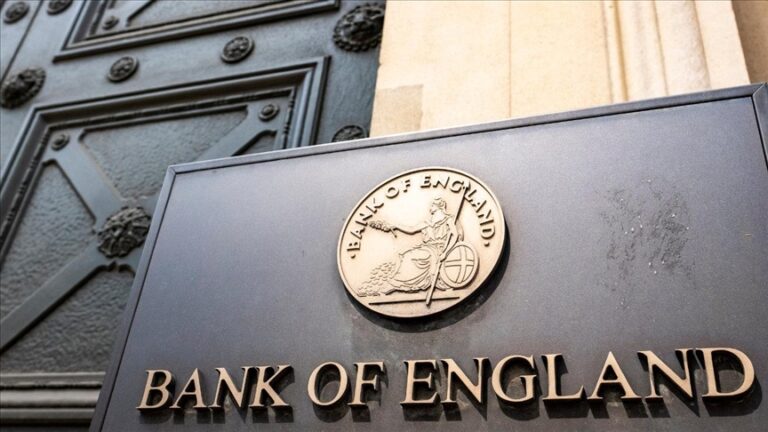Persistent Inflation May Lead to ‘hard landing’ and Severe Global Economic Consequences, IMF warns
The IMF has issued a warning that the global economy could face a “hard landing” if inflation persists and leads to extended periods of high interest rates, thereby increasing financial risks.
In its latest World Economic Outlook published on Tuesday, the IMF kept its overall economic forecasts largely the same as those from January.
However, the IMF emphasized that despite signs of resilience and lower global energy and food prices, there is a darker reality that is being hidden.
According to the IMF’s chief economist, Pierre-Olivier Gourinchas, turbulence is building and the situation is quite fragile.
“Inflation is much stickier than anticipated even a few months ago,” he said.
“More worrisome is that the sharp [monetary] policy tightening of the past 12 months is starting to have serious side effects for the financial sector.”
The IMF stated in its biannual comprehensive forecasts released on Tuesday that the recent upheaval in the UK government bond market and the turbulence witnessed in US banking last month have revealed “significant vulnerabilities” present in both banks and non-bank financial institutions.
“Risks to the outlook are heavily skewed to the downside, with the chances of a hard landing having risen sharply,” the IMF said.
According to Gournichas, policymakers need to consider potential risks, even though the banking system is much more robust than it was during the 2008 crisis.
“We can all remember the long time between the failure of an individual institution, whether it was Bear Stearns or Countrywide,” he said, referring to institutions that failed more than a decade ago. “Every time, this was treated like an isolated incident, until it wasn’t.”
IMF’s latest forecasts show that there is a 25 percent chance that the global growth rate in 2023 may drop below 2 percent, which is twice as much as the normal risk level.
It is noteworthy that since 1970, the global economy has only experienced such slow growth for five calendar years.
The IMF has indicated that if a substantial financial shock were to occur – an event that the fund assessed as having a 15% chance of happening – it would result in global growth falling below the population growth rate and trigger a worldwide recession.
According to the IMF’s unaltered central projection, the global economy is anticipated to expand by 2.8 percent in 2023, followed by an increase to 3 percent in 2024, and maintain that level until approximately 2028.
Last week, the Managing Director of the IMF, Kristalina Georgieva, stated that this was the most fragile medium-term forecast for the global economy since 1990.
Gournichas says the IMF is anticipating a surge in growth in China while other countries revert to a more typical rate.
The IMF also expects a decline in global productivity and foresees economies struggling with pandemic-related “scarring” and fragmentation due to geopolitical tensions.
The IMF has increased its economic outlook for the United States, now anticipating growth of 1.6 percent in 2023 and 1.1 percent in 2024 compared to the January forecast.
Three months ago, the IMF’s forecast projected an increase of 1.4 percent this year, followed by a 1 percent expansion in the following year.
The Eurozone is expected to experience a slower growth rate of 0.8 percent this year due to the member states dealing with the energy price hikes of the previous year.
However, the region is expected to recover and achieve a growth rate of 1.4 percent in 2024.
The IMF has projected China’s growth rate to be 5.2 percent in 2023, which is in alignment with the target set by the Beijing government.
However, the organization expects the rate to decline to 4.5 percent in 2024.
The IMF urged central banks to continue their efforts to lower inflation and recommended that governments withdraw some of the fiscal support provided in response to the Covid-19 pandemic and energy crisis.
According to the fund, as long as the financial markets stay relatively steady, central banks must exhaust all efforts to curb inflation.
Gournichas cautioned that price pressures might continue to persist, resulting in a scenario of a more challenging economic decline.
“There is a concern out there that we may not have enough tightening in the system at this point and more will be needed,” he said.
“That would certainly increase the odds that output would come down further compared to our projections.”
However, he stated that a credit crunch being predicted by some economists in light of the recent banking turmoil in the US could potentially serve as a disinflationary force.
“As long as it is orderly, some of this lending contraction may actually be beneficial in terms of bringing down inflation and may substitute for further interest rate hikes,” Gournichas said.






